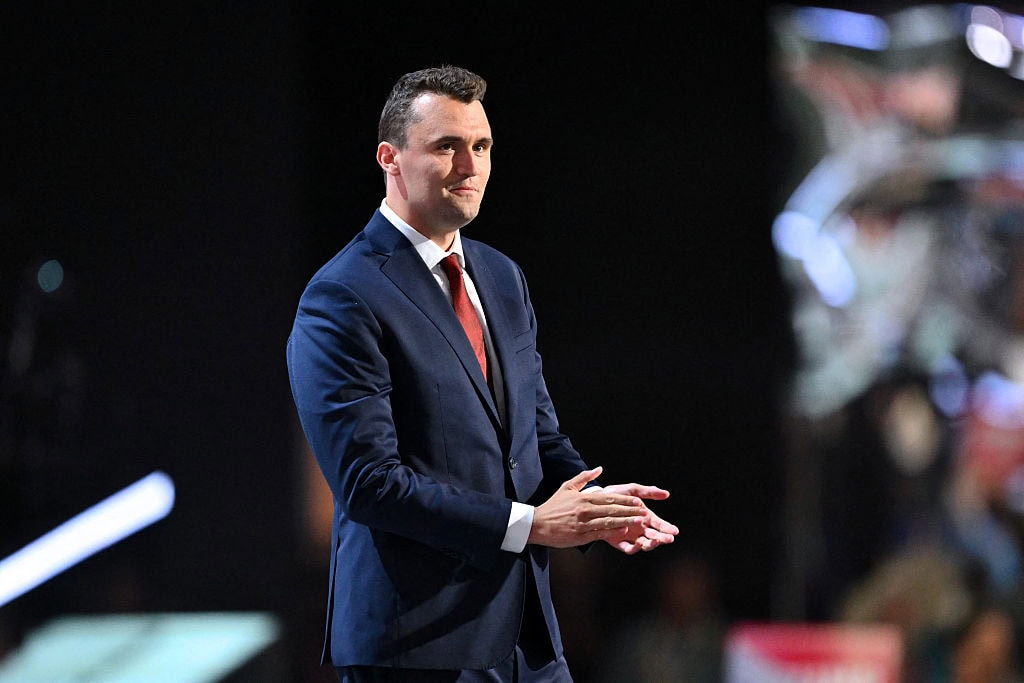The Editor-in-Chief of the viral satire website tells his story, addresses factchecking controversies, and explores the philosophy of the Bee.
No to Christian-Communist Collaboration

Pope Francis’s dalliance with a tyrannical ideology needs to be confronted.
All friends of Western civilization, and of the great and enduring causes of liberty and human dignity, cannot remain indifferent to the contemporary fate of the Roman Catholic Church. However imperfect it is at the merely human or institutional level, the Church has ceaselessly reminded human beings of the limits of conceiving of human persons as mere animals, dominated by self-will, vulgar hedonism, and an illusory autonomy that pretends that woefully imperfect men are in fact self-contained gods.
With the other great Christian communions, it has provided a vibrant and visible manifestation of the sacred and the sacramental, of a transcendent and providential God who is active in the lives of human beings, in the process bestowing liberating grace and uplifting broken souls. It has been the spiritual body in the modern world that has best instantiated indispensable notions and practices such as right reason, the natural moral law, and a robust respect for enduring verities and wise and salutary traditions. It has reminded us of sin and the promise of redemption. It has consistently resisted lawless and reckless conceptions of human freedom and has never catered to a zeitgeist that indulges base desires, sentimental or utopian visions, or inhuman ideologies and totalitarian political projects.
To be sure, there have been “progressivist” Christian theologians and activists for a very long time now. They tend to identify Christianity with fashionable secular ideologies that conflate the “poor in spirit” with the proletariat as a revolutionary class privileged by the movement of History. Strangely, they often see in cruel tyrannies that persecute their co-religionists signs of the Kingdom of Heaven at work. They consistently put the fashions of the age above the wisdom of the Church, faith in human “emancipation” above deference to the commandments of a loving and wise God. They wish to change everything—unchanging human nature, the fundamental laws and structures of social and political life, the traditions of the Church, and an equally unchanging natural law.
In their ersatz Christianity, there is little or no place for what T.S. Eliot called the “Permanent Things,” the things that endure. They are indulgent toward left-wing revolutionaries but are generally pacifists when it comes to the defense of free and decent societies. They constantly invoke the necessity of “change” and, in doing so, defer to the least wise ideological currents in the late modern world. In any departure from theological, political, or moral sanity they detect the work of the Holy Spirit, who is hardly distinct in their understanding from “the spirit of the age,” however unwise or deranged. In their contempt for old wisdom and their ill-advised enthusiasm for the new, newer, and newest, they display endless contempt for political sobriety and the high prudence of Western ethical and political traditions. There is little to learn from them except what to avoid.
Alas, much of the above applies to the papacy of Pope Francis. His acolytes and advisors are all progressives. Depressingly, this pontificate takes regular and specific aim at those who are most faithful to the moral law and the faith of the fathers. Open and aggressive heresy in the German church goes largely unremarked, but those who love the age-old Latin Mass are held in contempt and duly punished. Moreover, those around the pope increasingly refer to his “personal magisterium” as if the Catholic religion began anew with his pontificate and his private judgment about all things under the heavens. The game of “popesplaining,” as the theologian Larry Chapp wittily calls it, the art of constantly justifying or explaining Francis’s more troublesome and alarming utterances, has worn terribly thin and can no longer be remotely justified. We, faithful Catholics and men of good will more generally, must have the courage to see and tell the truth, respectfully but firmly and unequivocally.
Just when one hopes against hope it couldn’t get any worse, the politically inept and immoderate pontiff has now called for greater dialogue and cooperation between Christians, on the one hand, and Marxists and Communists, on the other. In recent remarks to DIALOP, a group dedicated to dialogue and political cooperation between Christians and Marxists, Francis lauded such cooperation to fight war and injustice and to “imagine a ‘better world.’”
His statement shows no evidence that Francis understands Communism on the level of theory or practice or the limits of this-worldly utopian “dreaming” as he calls it. “[T]he great dreams of freedom, and equality, of dignity and fraternity” are deemed “a reflection of God’s dream,” and they alone are said to have “produced progress and advances.” These naïve effusions ignore the murderous consequences of ill-conceived dreams being put into revolutionary practice, and the confiscation of political, intellectual, and religious liberty that inevitably has accompanied the replacement of political reason and moderation by coercive utopianism. How have Christians actually fared in the Soviet Union, Communist China, the People’s Republics of East-Central Europe and in North Korea, Cuba, and Vietnam? To ask the question is to answer it. In past weeks Catholic bishops have been arrested in both Marxist Nicaragua and the People’s Republic of China (although the Nicaraguan bishop and a score of other clerics have just been exiled to the Vatican—hardly a victory for true political or religious liberty). Perhaps it is time for the pope to take note.
In his latest statement, Francis predictably takes indiscriminate aim at ill-defined “market mechanisms” but says not a word about how concrete human beings, including the poor, fare in societies that have brutally suppressed private ownership, market competition, and a civil society that can challenge and limit the self-aggrandizement of collectivizing state power. Somehow, Marxists, aided and abetted by progressivist Christians, are called to fight corruption and defend the rule of law. When have Marxist regimes respected the rule of law and the dignity of the human person? It is no accident that Francis’s statement calling for enhanced cooperation between Christians and Marxists makes passing reference to the crimes of the Nazi dictatorship but says not a word about the comparable crimes of an untold number of Communist dictatorships including Cuba, led for 55 years by a tyrant whom Francis has publicly called his “friend.”
As commentators such as Rod Dreher and Edward Feser have ably pointed out, Francis not only ignores the forceful criticism of Communist theory and practice by his ten immediate predecessors, but he refuses to judge Communism by the myriad ways in which it has suppressed human liberty and actively warred on the Christian faith. Its materialism and atheism seemingly bothers him not a whit. Has he even opened the covers of Solzhenitsyn’s The Gulag Archipelago, the most powerful account ever written of the deadly fruits delivered by applied ideology, by utopia-in-power?
In a rare moment of lucidity regarding the nature of totalitarianism, Francis lamented the increasingly vicious persecution of the Catholic Church by Nicaragua’s Sandinista regime. He added, astutely enough, that “it is something out of line with reality; it is as if we were bringing back the communist dictatorship of 1917 or the Hitler dictatorship of 1935.” But in all this and in his more recent comments about the situation of the church in Nicaragua, Francis has followed up by calling for enhanced and renewed “dialogue” between the Church (and civil society) and the regime that persecutes them. But dialogue is only possible with those who accept reasoning, however imperfectly, as an operative principle of ethical and political life. Anyone minimally shaped and informed by an older Christian wisdom ought to know this to the depth of his being. A modicum of Christian realism would show the limits of dialogue with those who adopt totalitarian premises and implement them in practice.
Naiveté about the evils inherent in ideological politics is hardly a Christian virtue. At this point in time, it is inexcusable for a pope, or anyone else. Too much is at stake.
Francis’s great predecessors knew better. Popes John Paul II and Benedict XVI, from Poland and Germany respectively, knew totalitarianism from the inside and immediately discerned its incompatibility with the Gospel of Christ, as well as with liberty and human dignity. They opposed liberation theology in its dominant Marxisant forms while pleading for full respect for human rights and the well-being of the poor and disadvantaged.
In his 1971 Apostolic Letter Octogesima Adveniens, Pope Paul VI incisively warned that Christians “cannot adhere to the Marxist ideology, to its atheistic materialism, to its dialectic of violence and to the way it absorbs individual freedom in the collectivity, at the same time denying all transcendence to man and his personal and collective history.” Hardly a political conservative, Paul VI feared and lamented every ideological and utopian appropriation of the Christian faith.
Dreaming is never enough, and false dreams are calamitous. Human beings, and Christians among them, also need a profound sense of “limitation” Pope Paul added, a genuine appreciation of those limits integral to human nature and the nature of things.
And as Andrew Fowler points out in a fine article at RealClearReligion, addressing Pope Francis’s strange and lamentable accommodation with Marxism (even if the pope is strictly speaking no Marxist), Pope Pius XI had warned in his great encyclical Divini Redemptoris (1937) that Communism only had the appearance of the good when it was in fact a dangerous “false messianic idea,” one that is and remains thoroughly totalitarian in theory and practice. It was hardly the way to improve the lot of the poor and disadvantaged since they, too, only thrive in liberty. Communism was, the pontiff insisted, intrinsically incompatible with “reason and Divine Revelation,” and in its very nature relies on “half-truths and deceptions.” Where Francis sees concern for the “least of the brethren,” his predecessors rightly saw mendacity and a Satanic falsification of the Good.
Francis’s pontificate is winding to a close, unfortunately living up to the pope’s earlier promise to make “a mess of things.” It should be added that sowing confusion in the hearts and minds of men is hardly among the sacred obligations of one who is charged to be a guardian of Christian wisdom and the moral law. May his successors (and Francis himself if God allots the time) take note of the Polish philosopher Leszek Kołakowski’s magisterial words in the conclusion of his classic work Main Currents of Marxism, the best existing book on the subject. Writing in 1978, Kołakowski rightly called Marxism “the greatest fantasy of the twentieth century…a dream offering the prospect of a society of perfect unity, in which all human aspirations would be fulfilled and all values reconciled.” Kołakowski brilliantly concludes his masterpiece with these fitting and memorable words:
The self-deification of mankind, to which Marxism gave philosophical expression, has ended in the same way as all such attempts, whether individual or collective; it has revealed itself as the farcical aspect of human bondage.
A final warning: Some dreams, those contrary to human nature and the nature of things, turn out to be nightmares that ravage the bodies and souls of human beings made “in the image and likeness” of God. Christians have an obligation to oppose them intelligently, but with might and main.
The American Mind presents a range of perspectives. Views are writers’ own and do not necessarily represent those of The Claremont Institute.
The American Mind is a publication of the Claremont Institute, a non-profit 501(c)(3) organization, dedicated to restoring the principles of the American Founding to their rightful, preeminent authority in our national life. Interested in supporting our work? Gifts to the Claremont Institute are tax-deductible.
“Pride Month” and the cardinal sin.
Old-time liberals would not recognize the doctrine that speaks in their name.
The deadly theology of the American Left.
The dark history of the radical Left's enforcement arm.
Caricatures and lies abound in the attempt to subvert the West.






